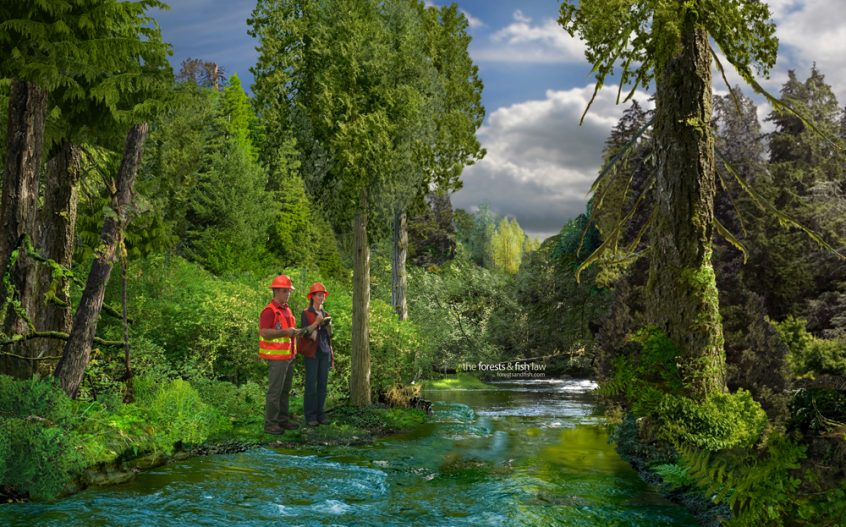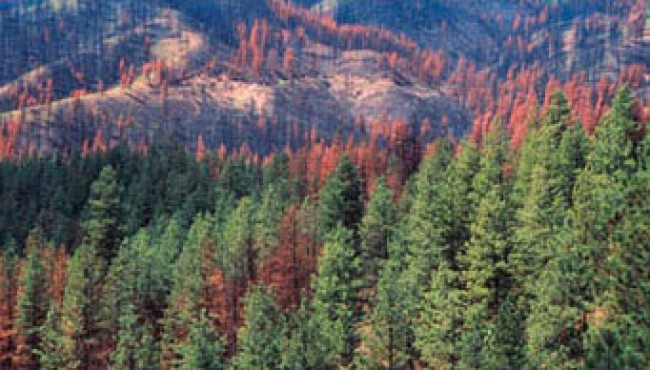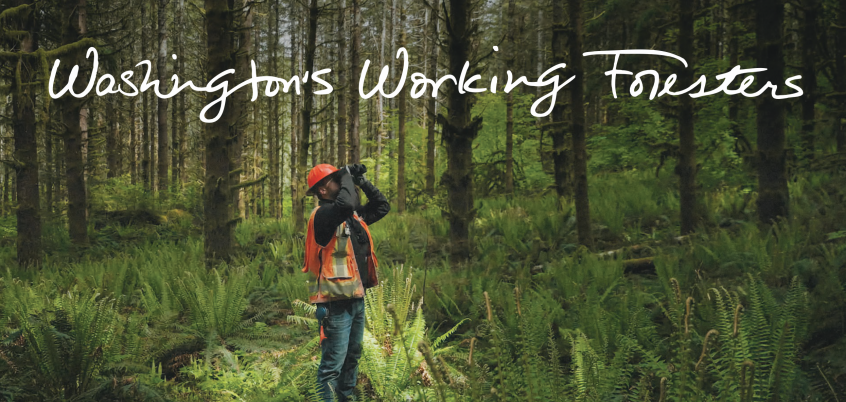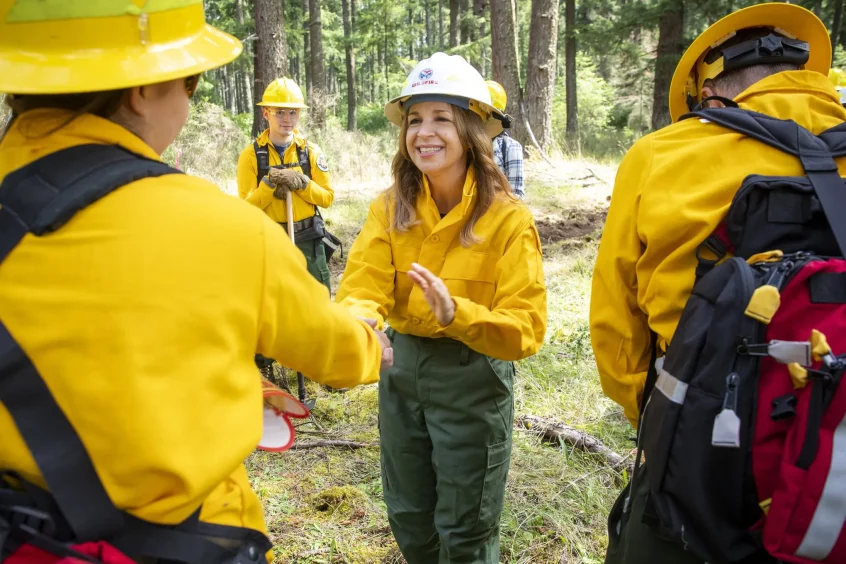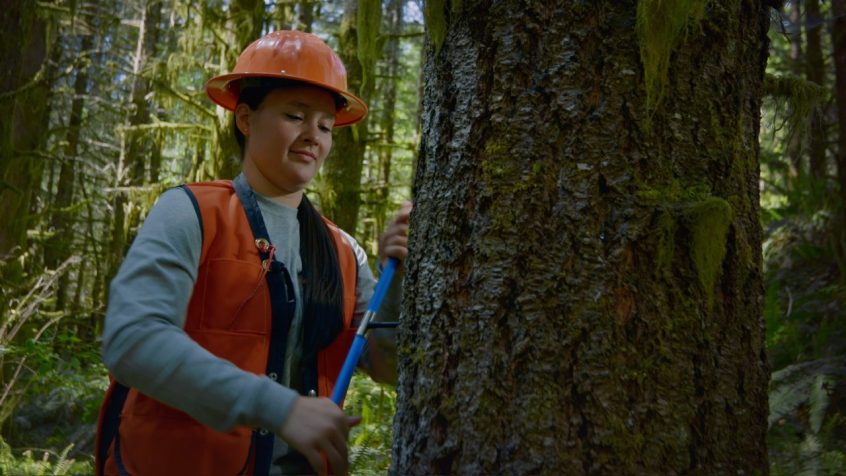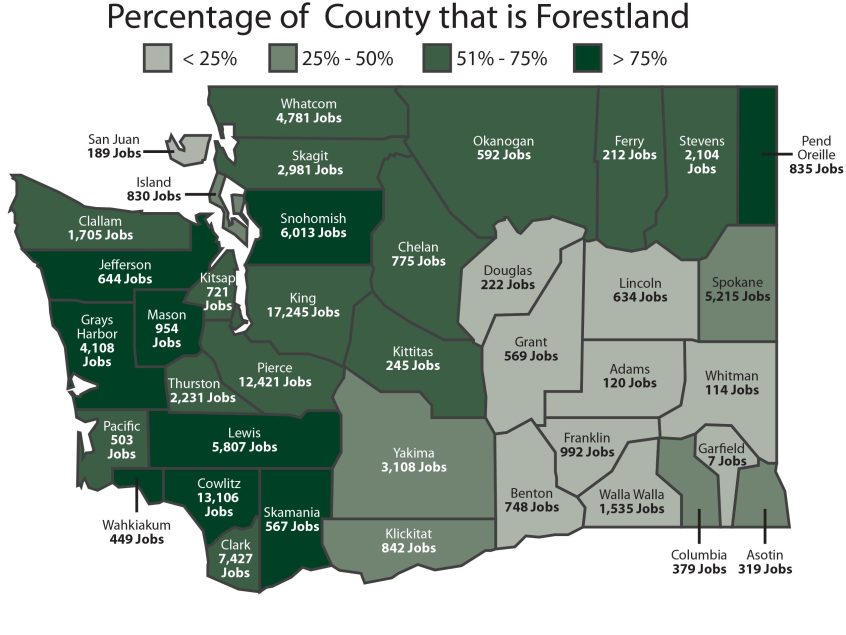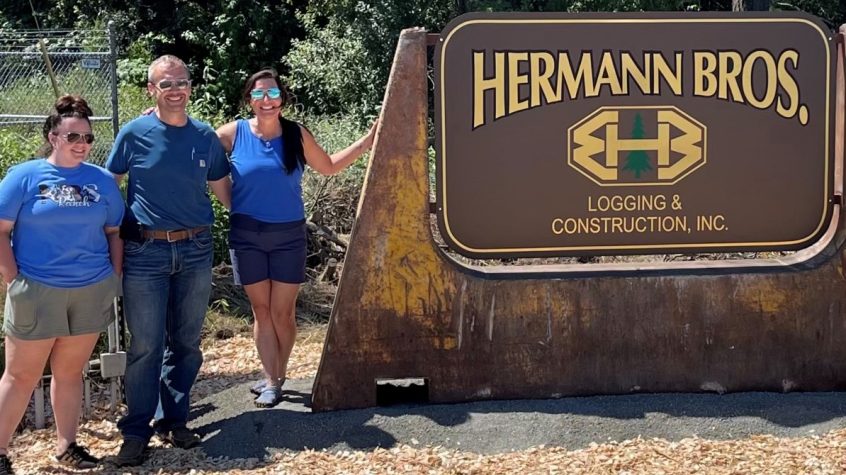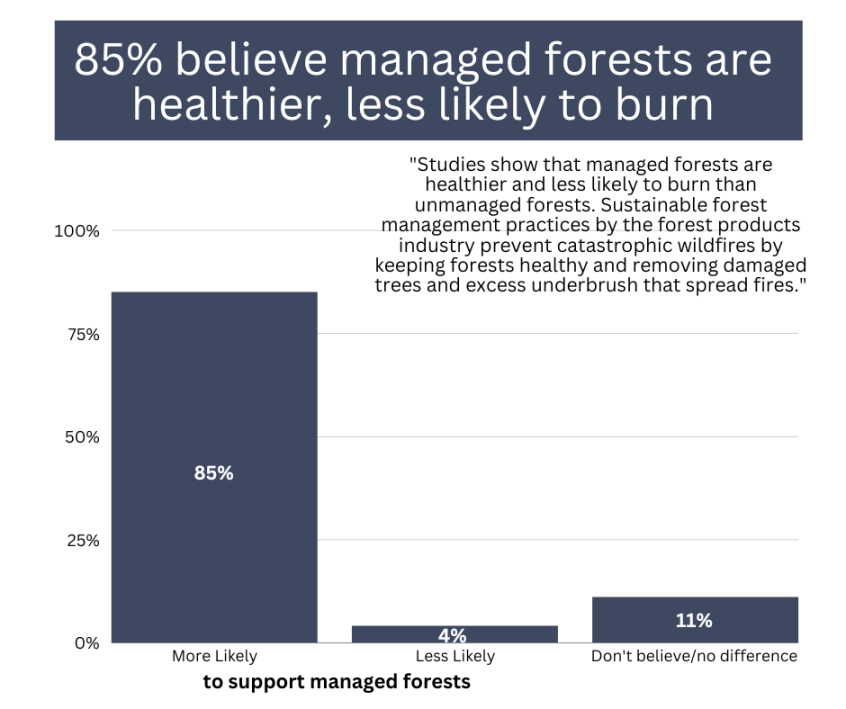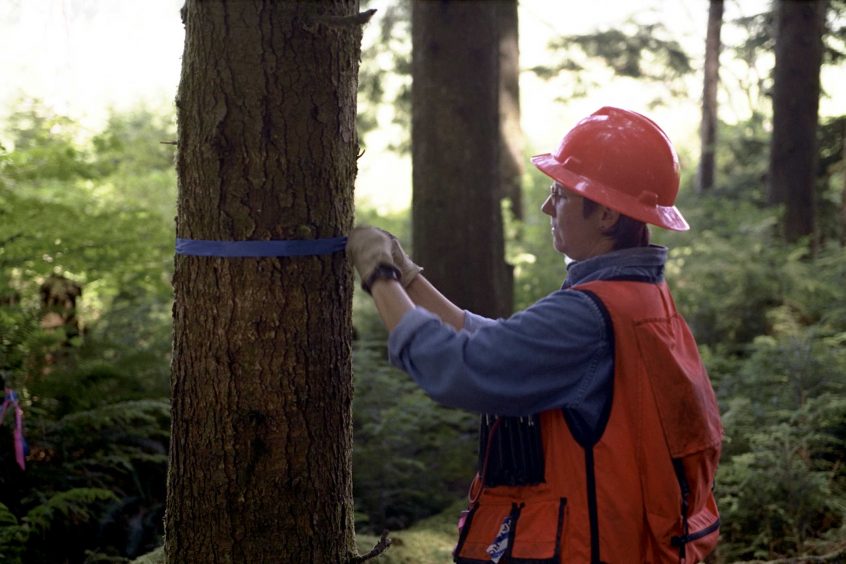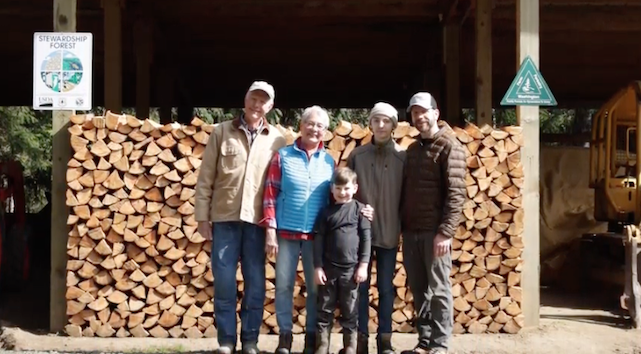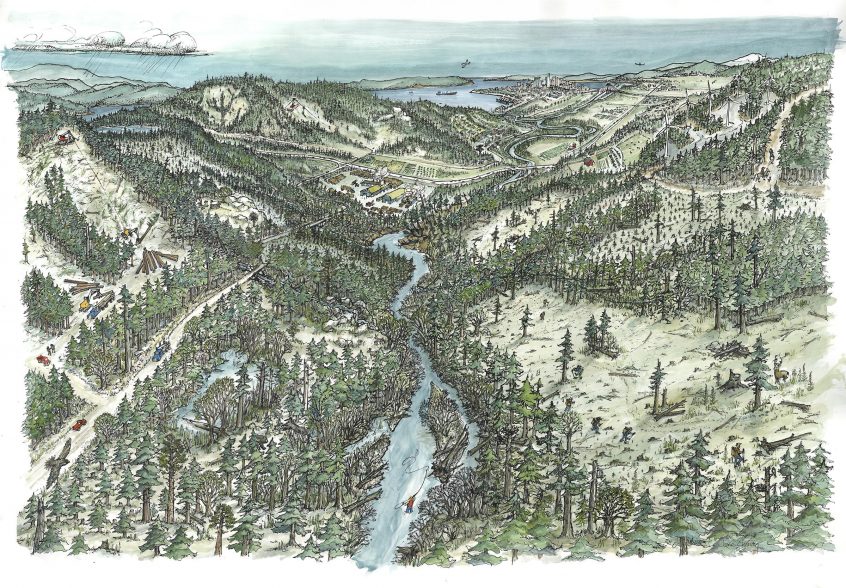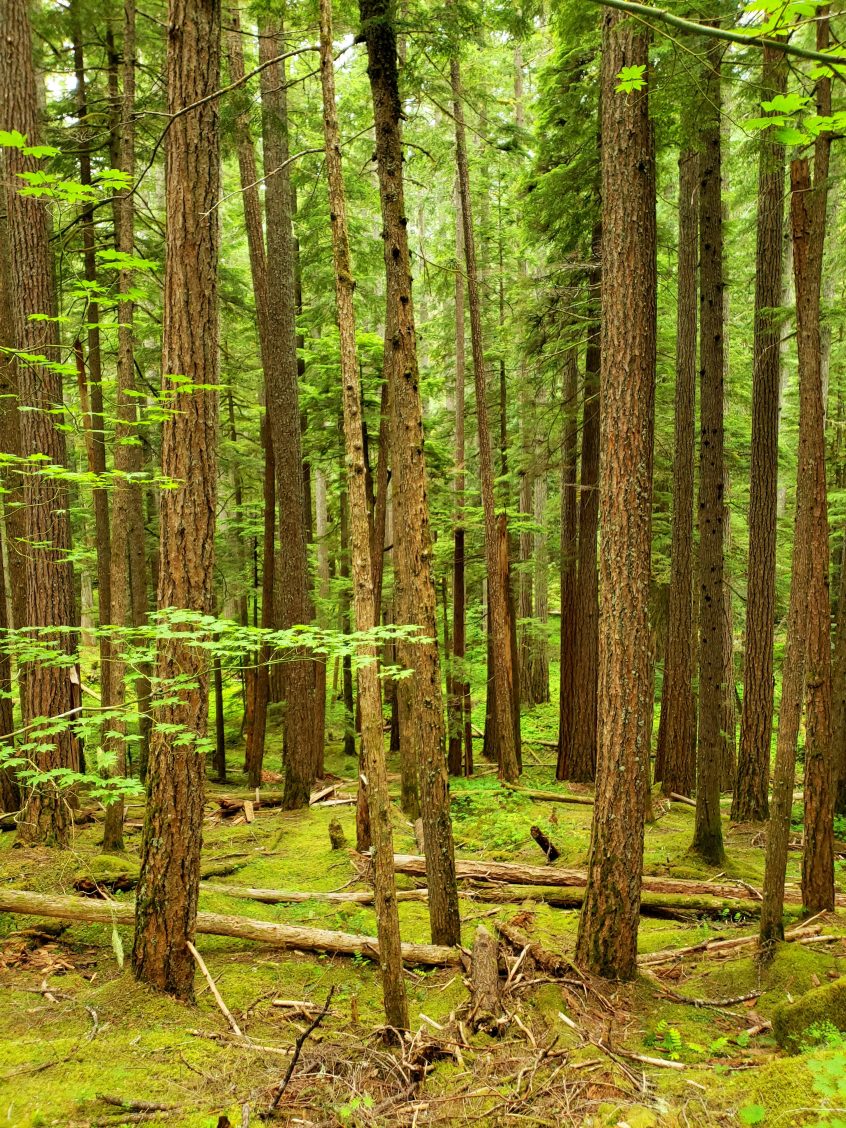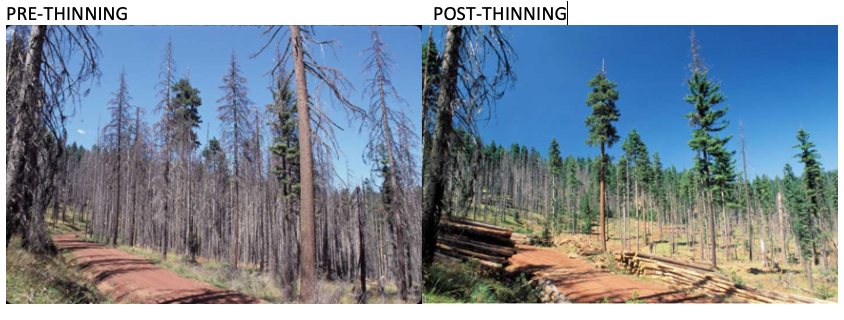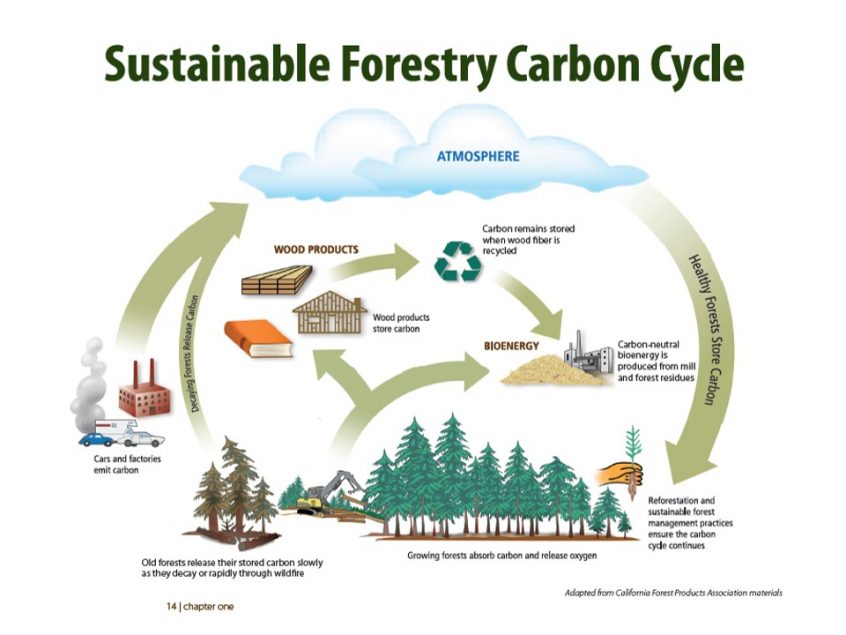Washington’s forest practices regulations have evolved since the Forest Practices Act (FPA) was introduced in 1974. The goal of the FPA has been to ensure sustainable forest management that balances timber harvesting with the protection of the environment. Over the years, the state has refined its compliance efforts, shifting from addressing complaints to proactive monitoring, focused on both education and … Read More
The Connection Between Forest Management and Wildfire Mitigation
Overview of Washington’s Forests Washington’s forests cover nearly half the state, offering a diverse landscape shaped by varying climates, tree species, and wildlife. These forests provide economic, social, and environmental benefits. Ownership is a mix of public (about two-thirds) and private lands, including federal, state, municipal, tribal, conservation, and private family forest lands. While Washington’s forests show healthy regeneration in … Read More
No Time for a Forest Tour? Here are some videos to help.
What do Foresters do? Washington is one of the best places in the world to grow trees – see how foresters reduce catastrophic wildfire, and maximize wood products. The Riparian Zone: 60,000 miles of streams protected with more than 2 million acres of forests to protect cool, clean water for fish. Upland Wildlife: A wide range of upland wildlife, … Read More
Follow Hilary Franz’s leadership on wildfire: Seattle Times Editorial
seattletimes.com/opinion/editorials/follow-hilary-franzs-leadership-on-wildfire January 17, 2025 Images of the unrelenting infernos ravaging Los Angeles are a potent reminder of the increasing threats wildfire poses to homes and human life, including in Washington state. Climate change has made fire seasons drier, longer and more dangerous, especially when paired with the overgrowth and undermanagement of natural lands. But this state is far better safeguarded … Read More
Why a balanced approach leads to healthy forests
Forests play a critical role in our ecosystem, economy and quality of life. However, the misguided notion that the best way to preserving forests is leaving forestlands untouched is not only outdated but also potentially harmful. Actively managing forests to reduce wildfire severity is a long-held indigenous practice that has gained renewed support among individuals and organizations representing diverse interests, … Read More
Labor and Management work together in the Forest
Washington’s forest products industry is a cornerstone of the state’s economy, providing crucial support to rural communities and offering over 102,000 family wage jobs across all counties. These jobs contribute significantly to local economies, with the forest industry injecting $5.6 billion in wages and $300 million in taxes annually. However, the sustainability of these jobs is at risk due to … Read More
53% of Washington’s Forests are Protected, and many are dying
Washington’s forests are appreciated by us all, for their beauty, ecological values, jobs, recreation, and the forests and wood products they provide. We don’t often think about the health of our forests because they look so green from a distance. Those who recreate, hunt, live or work in forests, have a different vantage point, and can see when unmanaged forests … Read More
Women help drive forestry industry forward
Cinnamon Bear is an education forester with Manulife Forest Management in Orting, Washington. (Manulife Forest Management) By Washington Forest Protection Association Produced by ST Content Studio When Amelia Hermann recently started driving a 30,000-pound (when empty) wood chip truck at work, she was carrying on a three-generation family tradition. “A woman having this job is unusual, but not as unusual … Read More
Washington residents support active forest management
An overwhelming majority of Washington residents back the forestry sector and working forests. That’s according to a recent poll that found most Washington voters – 89% – throughout all four corners of the state saying they support forest management to promote thriving, healthy forests. Forest management refers to efforts taken by the forest products sector to sustainably grow, harvest, replant … Read More
Wildfire smoke draws attention to importance of forest management
Forest fires and wildfire smoke were on the minds of many last week as smoke blanketed every corner of Washington state, making national news and dominating local news headlines. But as firefighters work to contain the multiple large fires on both sides of the Cascades, one thing is painfully clear, unmanaged forests are amplifying an already challenging – and dangerous … Read More
Protecting Fish and Wildlife Habitat in Managed Forests
Two Buffer Zone Options to Protect Fish and Wildlife Habitat
2022 Year in Review
Washington’s private forest landowners continue to lead the way, and 2022 was no different. Whether it is applying the best science to support salmon recovery efforts or following proven-effective approaches to promote healthy, resilient forests, working forests demonstrate every day that they provide environmental, economic and societal benefits throughout the state. This is all happening while Washington’s foresters supply communities … Read More
114th WFPA Annual Meeting recognizes, celebrates working forests
Collaboration and building strong partnerships were the overarching themes at the 114th Washington Forest Protection Association (WFPA) Annual Meeting in Olympia. The meeting, which can be viewed on TVW in parts one and two, featured forestry sector leaders and elected officials recognizing the critical role Washington’s working foresters and private forest landowners play in the state’s economy, salmon recovery and … Read More
Late wildfire season underscores importance of forest management
The Washington State Department of Natural Resources reported the 2022 wildfire season to be the least destructive in a decade with just over 140,300 acres burned by October 7th. In addition to a dedicated firefighting crew and key partnerships with other agencies, Public Lands Commissioner Hilary Franz credited the passage of HB 1168 – passed unanimously by the Legislature in 2021 … Read More
2021 Year in Review: A managed forest is a healthy forest
Scientific research shows that actively managed forests promote ecosystem health, contribute to air and water quality for people and wildlife, and improve habitat for the animals that make the forest their home. This past year, a great deal of policymaking and practices centered round a concept that foresters and private forest landowners have long adhered to – that a managed … Read More
2021 Tree Farmer of the Year – a love of the land and legacy of stewardship
A Lewis County tree farm received the highest praise and recognition for its active role in sustainable forest management and outreach efforts. The Washington Tree Farm Program acknowledged Chuck and Nan Higgins, owners of the Michigan Hill Tree Farm, as the 2021 Tree Farmer of the Year. Said Chuck and Nan in an email to The Chronicle: “We feel very … Read More
Managed forests are healthy forests
As wildfires throughout the West dominate local and national news headlines, a University of Washington analysis of western forest fires concludes that more than a century of fire exclusion has made forests more vulnerable to large-scale wildfires. The study contends the misguided notion that all forest fires were bad created “dense forests packed with excess trees and brush that ignite … Read More
Op-ed urges lawmakers to invest, support forest health and wildfire plans
Unhealthy forests and climate change played a significant role in this year’s wildfires, but state lawmakers can help prevent the catastrophic damage and devastation from future massive wildfires, according to an opinion piece authored by leaders representing private forestland owners, the state Department of Natural Resources (DNR) and an environmental organization. In an op-ed penned by Washington Forest Protection Association … Read More
Drones provide foresters a new perspective
The forestry industry has long integrated innovative approaches and new technology into its operations. After all, active forest management relies on the latest science and best practices to promote healthy, resilient forests. And just as active forest management is essential to practicing sustainable forestry, incorporating technology and new advances has helped foresters and working forests better manage their renewable resources. … Read More
View of a working forester
Is a forest merely a collection of trees? The dictionary defines forests as a large area covered chiefly with trees and undergrowth. But at least in the case of working forests, there is much more than what a cursory glance or dictionary definition can convey. To help illustrate the complexities and thoughtful planning that is required of a working forest, … Read More
WSU Extension Forestry offers free online forest health classes
Social distancing and stay-home orders won’t prevent the Washington State University Extension Forestry program from fulfilling its mission to educate and provide research-based information for small-forest landowners. WSU Extension Forestry has launched a series of online webinars and began offering the free classes in May. The one-hour sessions have been met with enthusiasm by both forestland owners and the general … Read More
Prescribed burns, thinning increased forest resiliency during and after Carlton Complex fire, researchers say
Forested areas that had prescribed burns and tree thinning treatments in the Methow Valley in advance of the Carlton Complex fire experienced greater resiliency, according to a study published in Ecological Applications, the Ecological Society of America journal. A University of Washington news release reports that a joint study conducted by University of Washington and US Forest Service researchers found that … Read More
Modern-day forestry increasingly relies on technology, latest science
(Above: Sierra Pacific Industries’ state-of-the-art mill in Shelton.) The forestry industry of today is more complex and sophisticated than ever. Twenty-first-century foresters rely on expertise from a variety of scientific disciplines including dendrology, hydrology, biology and geology to study silviculture, wildlife, soils, insects, plants, disease and tree physiology when creating their forest management plans. In addition to science, the modern-day … Read More
Washington Legislature recognizing working forests’ role in curbing climate change
The 2020 Washington State Legislature began this week and the issue of climate change will be on the minds of lawmakers throughout the 60-day session. To that end, several legislators in the House and Senate are recognizing that the state’s forest products sector has a part to play in the effort to address climate change. Washington forests and wood products … Read More
- Page 1 of 2
- 1
- 2
